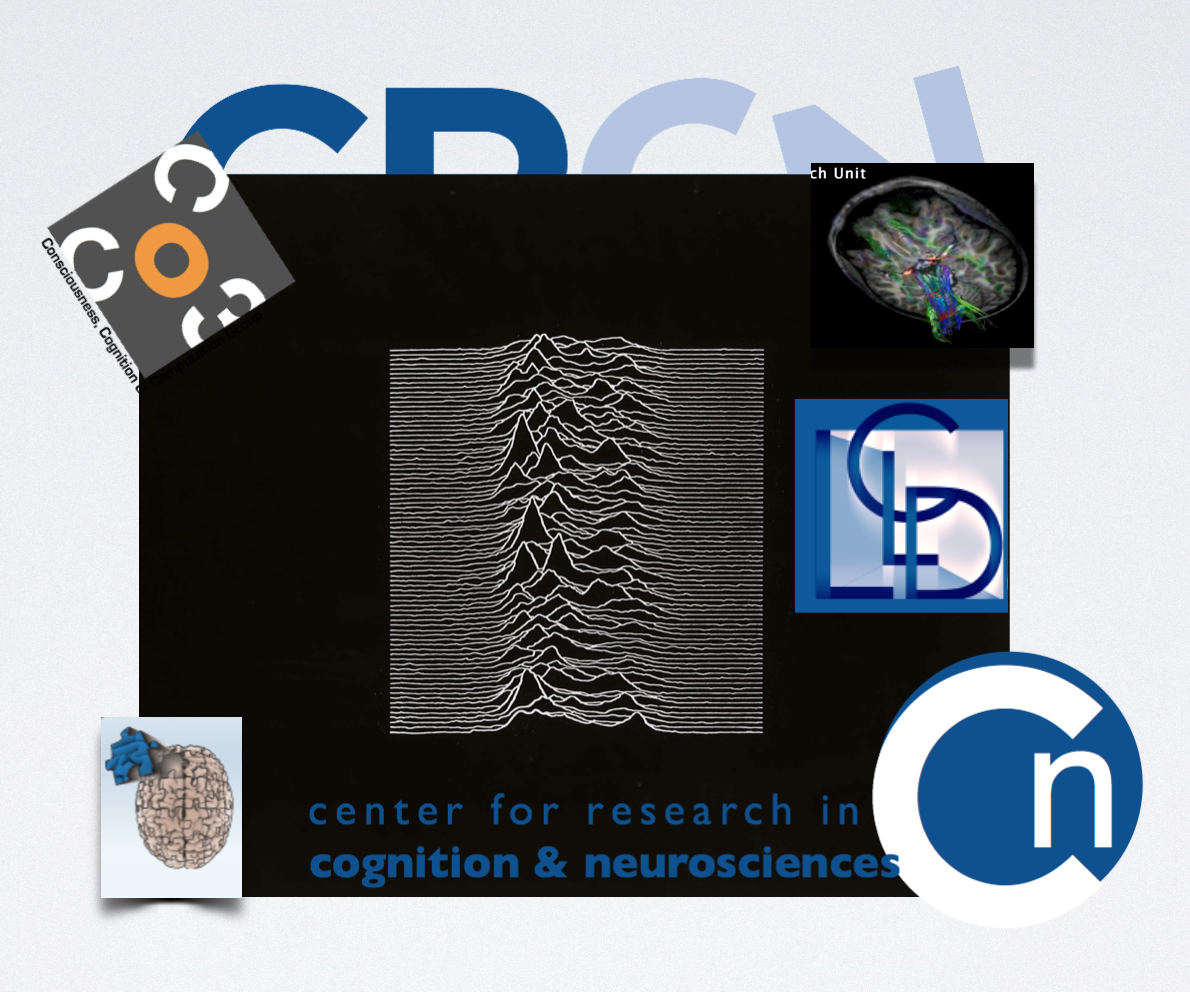CRCN / About
1948
/ Laboratoire de Psychologie
At the Université Libre de Bruxelles, Psychology began in 1948, when a new department was created within the Faculty of Philosophy, Arts and Letters. The French psychologist André Ombredane was recruited as the first full professor of Psychology. As a medical doctor, Ombredane had been an intern at the Henri Rousselle psychiatric hospital, and he was also a « Docteur ès Lettres » in Philosophy from the Sorbonne. An academic with eclectic interests, Ombredane had contributions in many domains, from social anthropology to aphasiology, as well as psychometry and ethology. In Brussels, he created the “Laboratoire de Psychologie”, which, after his passing in 1958, was split into three units : The Laboratoire de Psychologie Industrielle, The Laboratoire de Psychologie Différentielle, and the Laboratoire de Psychologie Expérimentale.
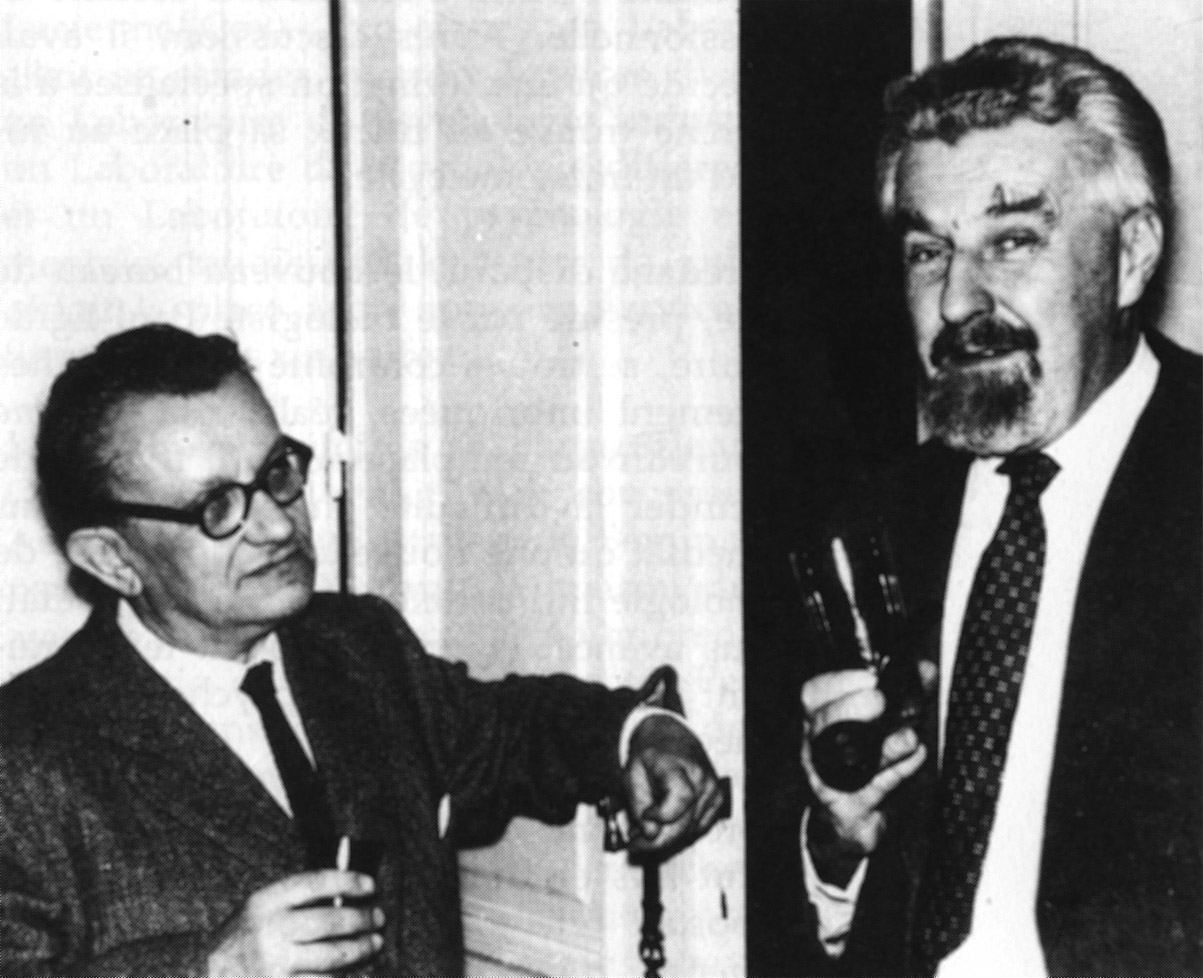
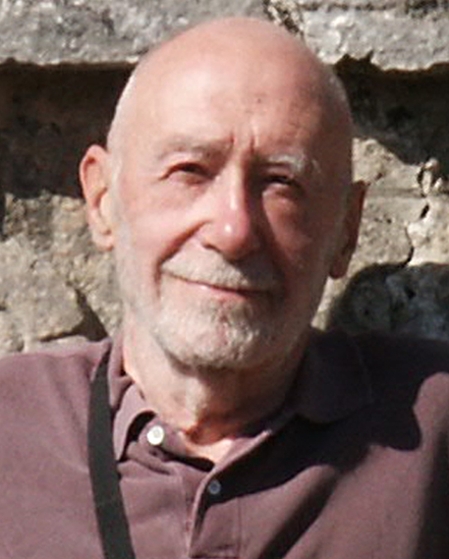
1959
/ Laboratoire de Psychologie Expérimentale
The Laboratoire de Psychologie Expérimentale was created in 1959 and was headed by Paul Bertelson (1926-2008) for more than 30 years until his retirement in 1991. As an assistant to Ombredane, Bertelson had spent time at the APU in Cambridge, where he had collaborated with Donald Broadbent on mental preparation to action and sequential effects on reaction time (Contribution expérimentale à l'étude de l'organisation temporelle de l'habileté, 1959). In the 1960's, the Laboratoire de psychologie Expérimentale was thus among the first to contribute to the field of mental chronometry. However, the lab was also known for its creative research on animal behavior, headed by another former assistant to Ombredane, Eliane Noirot. After her thesis (Analyse du comportement dit maternel chez la souris, 1958), Eliane Noirot became an associate professor and gradually turned to human ethology.
1973
/ From mental chronometry to hemispheric specialization, music and language
Among Bertelson’s students, four subsequently enjoyed academic careers at the Université Libre de Bruxelles. Monique Radeau launched a line of research on visual perception, prismatic adaptation and multisensory coordination (Thesis : « Adaptation au déplacement de l'espace visuel: contribution expérimentale », 1973) and later contributed, as a Research Associate and Research Director of the Fonds National de la Recherche Scientifique (FNRS) to several projects dedicated to psycholinguistics. Jesus Alegria’s dissertation was focused on choice reaction time (Thesis : « Contribution expérimentale à l'étude des ajustements préparatoires à court terme », 1975), but he quickly abandoned the study of mental chronometry to collaborate with Eliane Noirot on human developmental ethology (Alegria & Noirot, 1978 ; 1982). Later on, as a Professor, he turned to cognitive and linguistic development, with a particular focus on the impact of hearing disabilities on language reading and spelling acquisition. Daniel Holender, who also initially contributed to basic mental chronometry (Thesis : « Contribution expérimentale à l'étude des propriétés temporelles des ajustements préparatoires », 1975), quickly switched to the study of lexical and semantic processing . His long-standing and continuing interest in fundamental issues in psychology led to his highly cited critical Behavioural and Brain Sciences discussion of semantic activation without awareness (Holender, 1986), which is now an incontrovertible article in the psychology literature. The fourth member of the team was José Morais, whose initial interests were focused on neuropsychology and hemispheric laterality (Thesis : « Latéralité auditive et spécialisation hémisphérique », 1977). Jacques Mehler’s regular visits to Brussels as an invited professor of psycholinguistics and collaborations with portuguese colleagues led to well-known research on phonemic awareness in adult illiterates (Morais, Cary, Alegria & Bertelson, 1979).
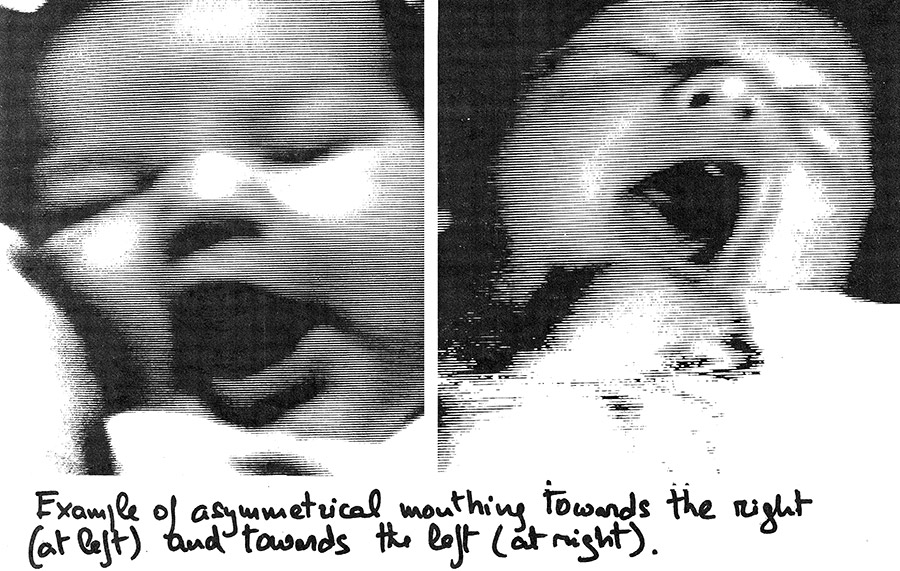
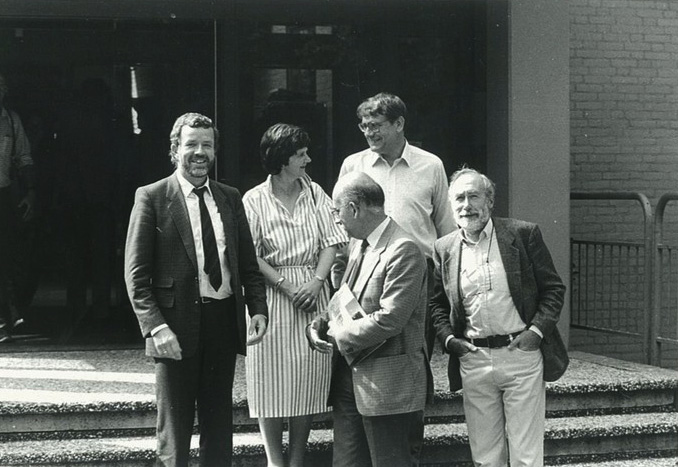
1980s
/ Psycholinguistics, reading acquisition and word recognition
In the 1980’s, most of the research effort was devoted to psycholinguistics and more specifically to word recognition across different modalities. This was mainly supported by grants from the FNRS and by a Concerted Research Action grant devoted to Cognitive processes in reading (1985-1990). It is during this period that a second generation of researchers emerged : Isabelle Peretz (Thesis : « Différences hémisphériques dans le traitement de la musique », 1984 ; advisors : Bertelson and Morais), Alain Content (Thesis: “L’analyse segmentale de la parole chez l’enfant”, 1985; advisors : Bertelson and Morais), Philippe Mousty (Thesis : « La lecture de l'écriture Braille: patrons d'exploration et fonctions des mains, 1986 ; advisor : Bertelson), Claire Genevrois (Thesis : « Réponses du nouveau-né à la voix et à des sons de l'environnement, 1986 ; advisors : Noirot and Alegria), Jacqueline Leybaert (Thesis : « Le traitement du mot écrit chez l'enfant sourd, 1987 ; advisor, Alegria), Régine Kolinsky (Thesis : « La séparabilité des propriétés dans la perception des forme, 1988 ; advisor : Bertelson), and Ronald Peereman (Thesis : « Représentations phonologiques dans la prononciation et l'identification des mots écrits alphabétiquement”, 1989; advisor, Holender).
1990s
/ Expansion and differentiation
When Paul Bertelson retired in 1991, José Morais took over and two further Concerted Research Actions continued to fund the laboratory (Language Processing in Different Modalities: Comparative Approaches, 1990-1995; The structure of the mental lexicon, 1996-2000). During this period, the group was enriched by the successive recruitments of Content, Mousty and Leybaert in the Faculty, and Kolinsky as a Research Associate of the FNRS. Claire Genevrois became a clinician at the University Hospital; Isabelle Peretz took a position at the Université de Montréal, and Ronald Peereman was recruited by the French CNRS at the Université de Bourgogne in Dijon. In 1991, Axel Cleeremans came back to Brussels as a Research Associate of the F.NR.S after completing his Ph.D. at Carnegie-Mellon University (Thesis: « Mechanisms of implicit learning: A parallel distributed processing model of sequence acquisition », 1991 ; Advisor: McClelland), and a Cognitive Science Research Unit (Séminaire de Recherche en Sciences Cognitives, now CO3) was created in 1993.
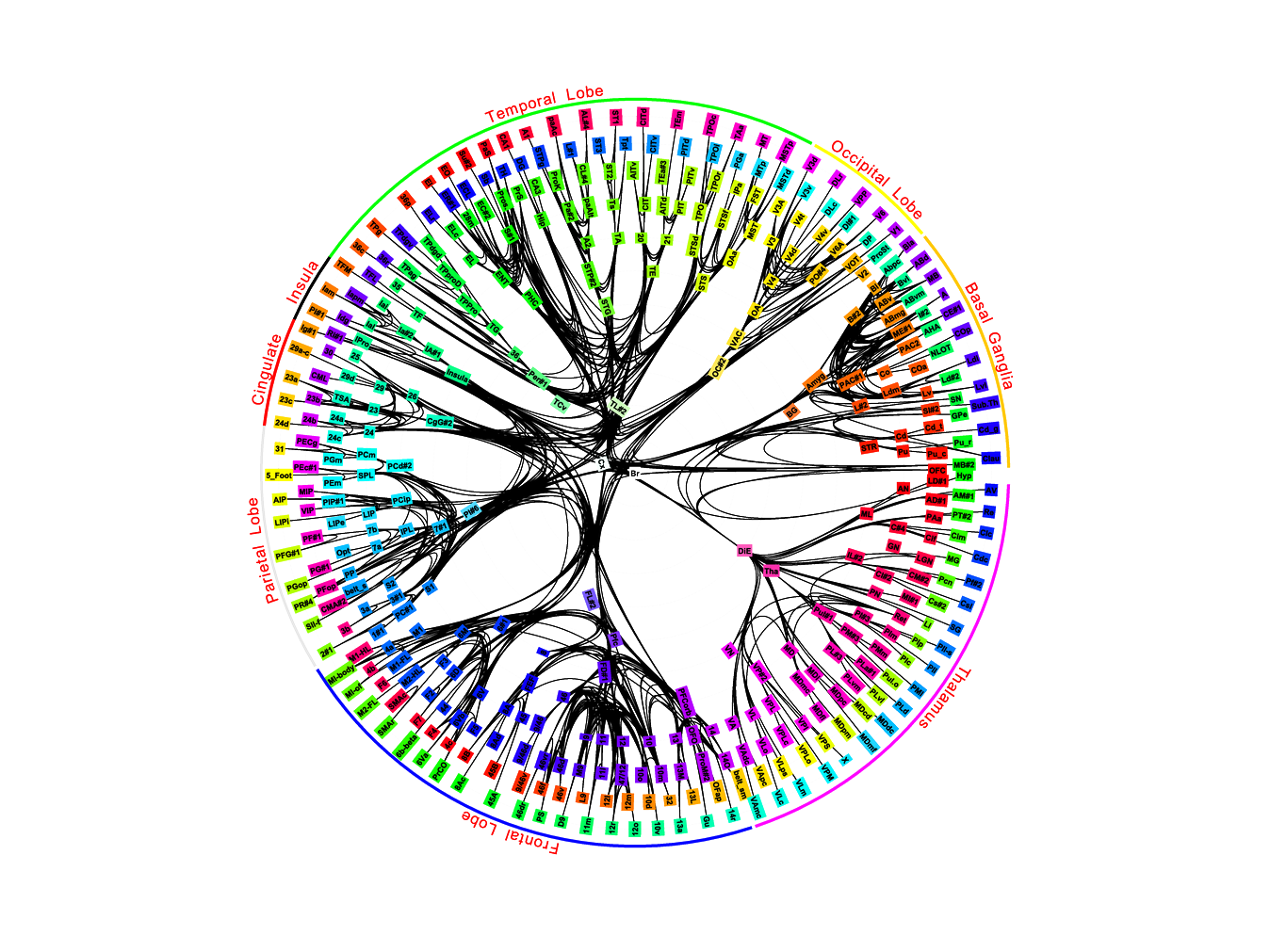

2000s
/ New dynamics
In 2000, the Laboratoire de psychologie Expérimentale split to form the Laboratoire Langage, Cognition et Développement (LCLD) and the Unité de Recherche en Neurosciences Cognitives (UNESCOG). The different teams were enriched by the successive recruitements of Arnaud Destrebecqz in 2005 and of Cécile Colin in 2006. After the attribution of a chair in Clinical Neuropsychology to Philippe Peigneux, also in 2006, the group now included four research units: the Language, Cognition & Development Lab (LCLD), headed by Alain Content, the Cognitive Neuroscience Unit (UNESCOG), headed by Régine Kolinsky, the Consciousness, Cognition and Computation group (CO3), directed by Axel Cleeremans, and the Neuropsychology and Neuroimaging unit (UR2NF), headed by Philippe Peigneux. A fifth unit (initially Action, Bias and Control AB&C, now Cognitive Science For Society CS4S) was created a few years after the arrival of Wim Gevers in 2009.
2012
/ Integration & the creation of the CRCN
In 2012, the five groups, whose members entertain many collaborations with each other as well as co-funded research projects, joined together to constitute the Center for Research in Cognition & Neurosciences (CRCN). Building the Center required collective reflection upon our shared goals and methods, as well as new visual identity. This collective soul-searching all came to life in 2014, with the creation of this web site as well as increasing interactions between the 60-strong team. The Center also had the pleasure, that same year, to recruit its newest faculty member: Fabienne Chetail, who joined LCLD. The Center regularly benefits from substantial funding from different sources. The different teams are engaged in and coordinate a 2012-2017 Interuniversity Attraction Pole (IUAP P7/33) program dedicated to the study of conscious and unconscious learning, and supported by the Belgian Science Policy Office (BELSPO). The CO3 team currently benefits from a European Research Council grant awarded to Axel Cleeremans and dedicated to the study of consciousness. CO3 is also supported by a grant from the Excellence Program of the Walloon Region and dedicated to the study of nutrition and food behaviour. The UR2NF team is currently engaged in a Concerted Research Action co-directed by Philippe Peigneux and dedicated to the study of memory consolidation in healthy and pathological subjects. Both Wim Gevers (CS4S) and Arnaud Destrebecqz (CO3 and babylab) recently obtained MIS grants from the F.R.S.-FNRS. Finally, the Center was further recently awarded a “Grands Equipements” grant from the F.R.S.-FNRS and from the Université Libre de Bruxelles, which enabled it to completely overhaul its experimental platform. Thanks to its own technical facilities as well as to easy access to the imaging facilities (fMRI, MEG, PET) of the Erasme University Hospital through the ULB Neuroscience Institute, the Center for Research in Cognition & Neurosciences is now a thriving community of about 60 researchers.
